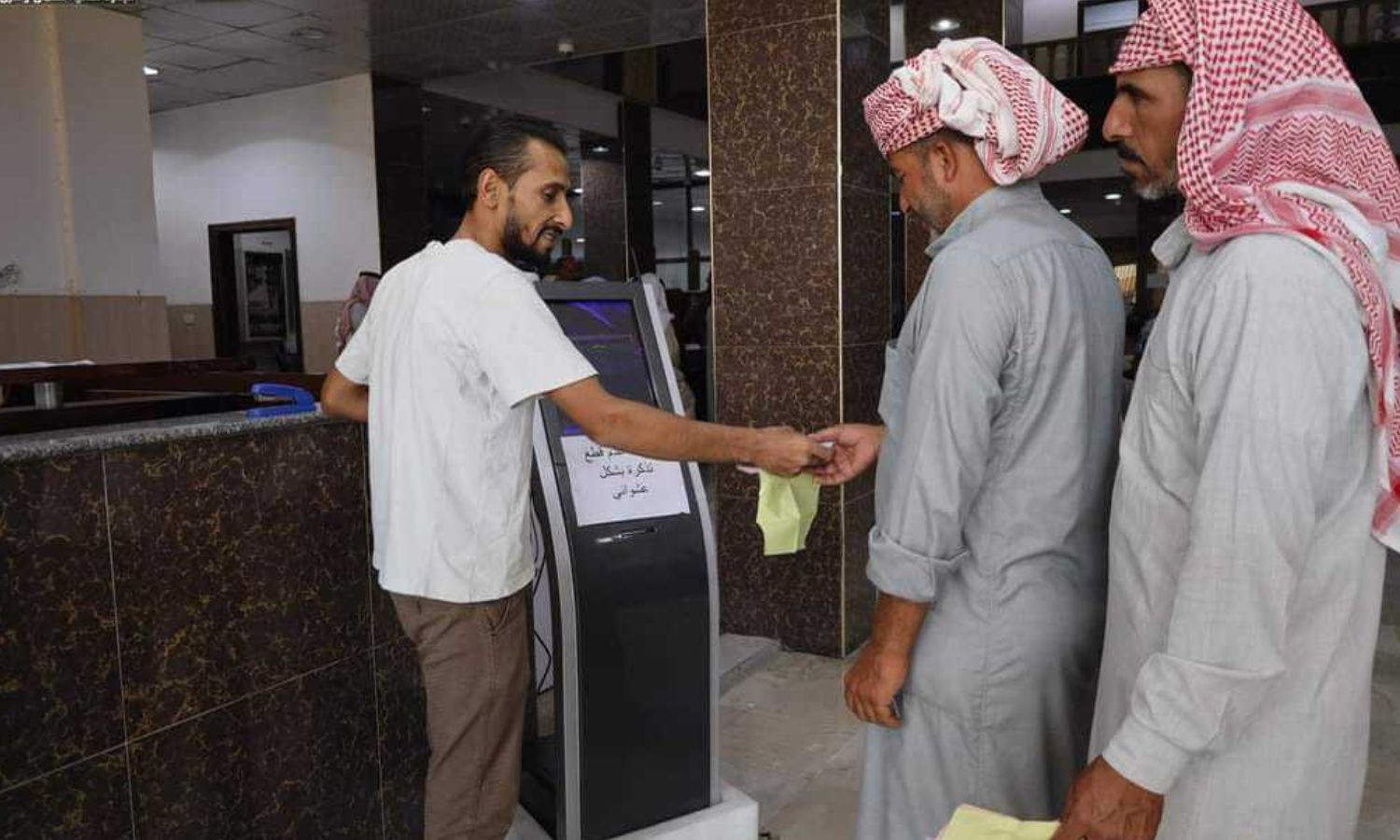



Enab Baladi – Jana al-Issa
During the past period, the Autonomous Administration of North and East Syria (AANES) issued a series of economic decisions aimed at regulating the financial sector in its areas of control.
The latest of these decisions was issued at the end of last January, represented by organizing the licensing of local and foreign banks in the region, in accordance with 40 articles that included multiple clauses.
According to the decision, it is prohibited for anyone to engage in any banking business in AANES areas without obtaining a prior written license under several conditions.
The decision defined banking activities as the activity that involves licensed banks accepting deposits from the public or from other payable funding sources for the purpose of investing and granting credit, as well as the activities practiced by specialized banks and the businesses carried out by Islamic banks, or any work permitted by law.
The decision opens the door to questions about the motives behind the Autonomous Administration’s desire to regulate banking operations and its capacity to do so.
The economic researcher at the Omran Center for Strategic Studies, Munaf Quman, believes that there are several reasons for establishing banks in northeast Syria, the most prominent of which are the abundance of natural resources, oil sales, trade with Syrian regime-controlled areas and the opposition in northwest Syria, and acquiring cash in US dollars and Syrian pounds.
Quman, in a talk with Enab Baladi, believes that, given the current data, there may be a need for the existence of cash depots to preserve money and then distribute salaries and wages to citizens, so banks may undertake roles such as these, according to him.
Oil sales revenue constituted the largest percentage of the Autonomous Administration’s revenues for the year 2022, at 77.3%, according to the co-president of the Financial Authority, Ahmad Youssef, in September 2023, explaining that the total revenues from oil returns reached about 604 million US dollars, noting that the remaining percentage of revenues was collected relying on customs and tax revenues and other incomes.
In 2021, the percentage of reliance on oil in the AANES’ budget was 92% of the total revenues, while the percentage of customs revenues was 7%, and the rest of the revenues was 1%.
This decision was preceded by similar decisions aimed at regulating the economy and the financial sector, which indicates a clear tendency by the Autonomous Administration with American support toward centralizing financial management in the area, as a kind of condition for economic financing for it, and the move toward more institutional work than being a “militia” controlling the area, according to a previous talk with several experts with Enab Baladi.
In December 2023, AANES issued a law regulating money transfer operations to and from its areas of control east of the Euphrates, whether through the four control areas or its border with Iraqi Kurdistan.
Prior to this, in August 2023, the minimum capital requirement for currency exchange companies and offices operating in its areas was specified, according to the Exchange and Remittance Operations Regulation law issued by it.
AANES also issued a law aimed at regulating the trade and manufacture of precious metals, which included licensing procedures and the practice of professions related to this trade.
Those undertaking these steps related to economic regulation in northeast Syria amid the absence of a political solution for Syria in general, or at least bilateral understandings, realize that they are playing on the promotion of the region’s media image, performing governance roles in the economy, even if they are formal, and anticipating any future steps that may pave the way for political solutions, according to what economic researcher Munaf Quman sees.
Quman explained that five years have passed since the Autonomous Administration took control of the area after the end of the Islamic State organization’s control, during which the economy has not improved, nor has the management of natural resources improved in a way that benefits the residents.
Nor has any unique experience or success that can be relied upon in the future been observed in the economic model followed, which is based on socialism and consumer institutions and cooperatives. For all these reasons, it is not possible to rely on laws for creating and licensing banks and financial institutions, according to Quman.
It is difficult to track how the Autonomous Administration’s budget revenues are collected and spent, but its main resources come from oil sales, taxes and fees on income, and fees on imported goods and materials, according to a study conducted by economic researcher Sinan Hatahet, published within the Middle East Paths program in January 2020.
The study clarified that the Financial Authority is the central institution in the Autonomous Administration responsible for managing the finances of the region, noting that local councils also have the right to levy and impose taxes, and collect revenues imposed on most professions and crafts, including small businesses like street vendors, shops, and public transport.
The Autonomous Administration justifies these measures as aimed at funding public services, but there is a general belief that the quality of service delivery does not match the amount of taxes collected.
The taxes collected by AANES and local councils fall into two main categories: fees for registering companies, practicing a profession, building permits, or services provided by administrations at the local level and the cantons level, and secondly, income tax on salaries.
The study indicated that reports from inside the Autonomous Administration are conflicting about the amount of fees imposed by its institutions, raising doubts about their arbitrary nature, or the inability to apply the same standards to all products or geographic sectors. Despite the clarity of the tax, control mechanisms are almost non-existent in the absence of a unified banking or financial system that would allow financial authorities to track citizens’ financial transactions.
if you think the article contain wrong information or you have additional details Send Correction